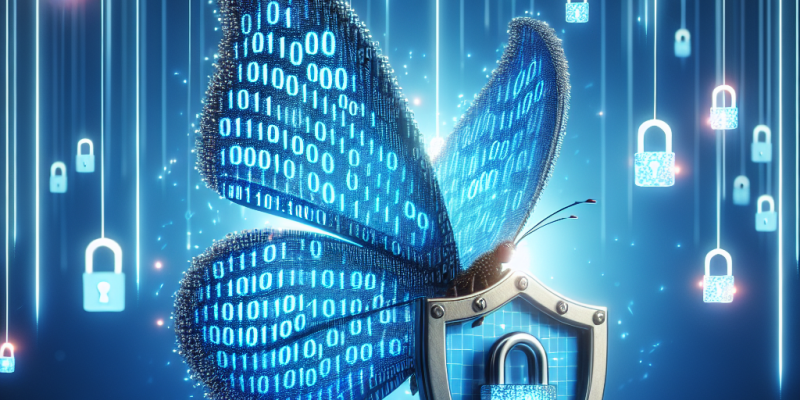Protecting Your Personal Data: Essential Cyber Hygiene Tips

In an age where our lives are increasingly intertwined with digital platforms, protecting personal data has never been more critical. Cyber attacks, data breaches, and identity theft are constant threats, making it essential for everyone to adopt good cyber hygiene. Here are some updated strategies to strengthen your data protection practices.
1. Use Strong, Unique Passwords
One of the fundamental steps in safeguarding your data is using strong passwords. Aim for:
- At least 12-16 characters, incorporating a mix of upper and lower case letters, numbers, and symbols.
- Unique passwords for different accounts to minimize risk if one account is compromised.
- A password manager to help generate and store complex passwords securely.
Update Alert: Multi-Factor Authentication (MFA)
Implementing multifactor authentication adds an additional layer of security. Even if a hacker obtains your password, they need the second factor—like a text message or an authenticator app—to access your account.
2. Be Wary of Phishing Attempts
Phishing remains a significant threat, with cybercriminals using sophisticated tactics to trick individuals into revealing personal information.
Tips to Spot Phishing:
- Look for spelling and grammar mistakes.
- Check the sender’s email address; legitimate emails often come from official domains.
- Be cautious of links and attachments, especially if unsolicited.
Update Alert: Use Advanced Email Filters
Make use of advanced spam filters that can recognize and block suspicious emails before they reach your inbox.
3. Secure Your Devices
Securing your devices is crucial in maintaining your personal data integrity.
- Use Antivirus and Anti-Malware Software: Ensure that your devices are equipped with up-to-date security software.
- Keep Your Software Updated: Regularly update your operating systems and applications to protect against vulnerabilities.
Update Alert: Implement Device Encryption
Encrypt your devices to protect your data in case of theft or unauthorized access, especially for mobile devices like smartphones and tablets.
4. Be Cautious on Public Wi-Fi
Public Wi-Fi networks can be hotbeds for cybercriminal activity.
Tips:
- Avoid accessing sensitive information like banking details over public networks.
- Use a Virtual Private Network (VPN) to encrypt your internet connection, making it more difficult for hackers to intercept your data.
Update Alert: Awareness of ’Evil Twin’ Attacks
Hackers can mimic legitimate Wi-Fi networks. Always verify the official network name before connecting.
5. Limit Data Sharing
Be mindful of the information you share online.
Strategies:
- Review privacy settings on social media platforms and limit access to personal information.
- Only share information that is essential and think twice before oversharing.
Update Alert: Know Your Apps
Regularly audit the apps you have installed on your devices. Remove any that you no longer use, as they can be a source of vulnerability.
6. Backup Your Data
Regularly backing up your data ensures that you don’t lose important information in case of a cyber incident.
Tips:
- Use a combination of cloud storage and physical backups (like external hard drives).
- Schedule automatic backups to ensure consistency.
Update Alert: Redundancy in Backups
Consider using different backup solutions to ensure that if one fails, another is available.
7. Educate Yourself and Others
Cyber hygiene is a shared responsibility. Stay informed about the latest security trends and educate those around you.
Tips:
- Follow reputable cybersecurity blogs and news outlets.
- Conduct training sessions or discussions within your community or workplace.
Update Alert: Cybersecurity Awareness Programs
Consider enrolling in or promoting cybersecurity awareness programs that help individuals recognize and respond to evolving cyber threats.
Conclusion
Protecting your personal data is an ongoing effort that requires vigilance and proactive measures. By adopting these essential cyber hygiene tips, you can significantly reduce your risk of falling victim to cyber attacks. Remember, the digital landscape is always changing; staying informed and adaptable is key to robust personal data protection. Prioritize your cyber safety today, and empower those around you to do the same.














